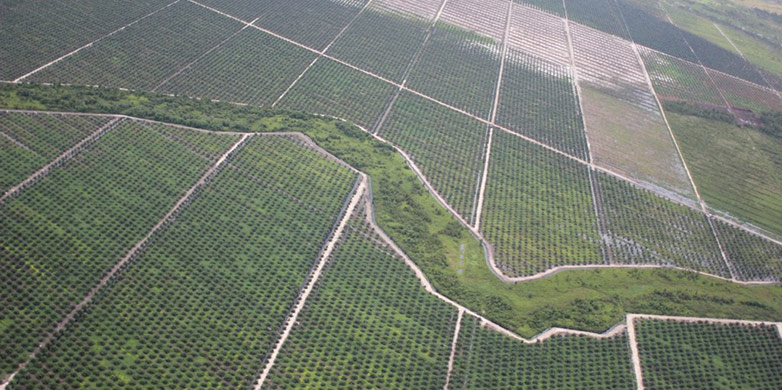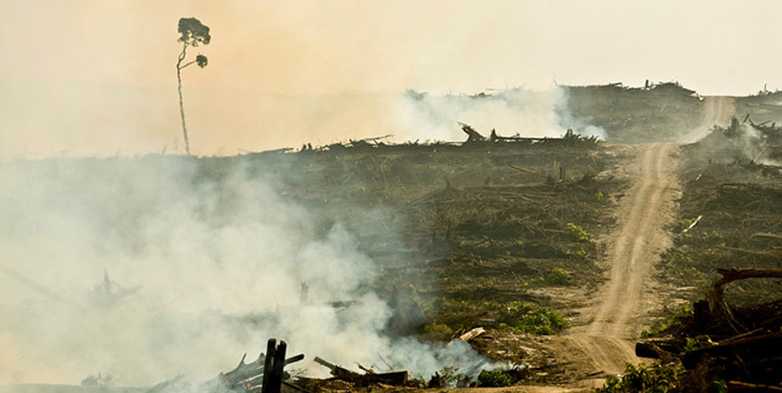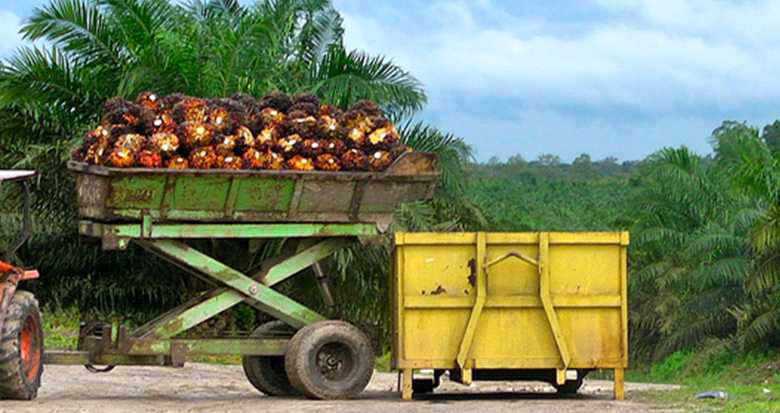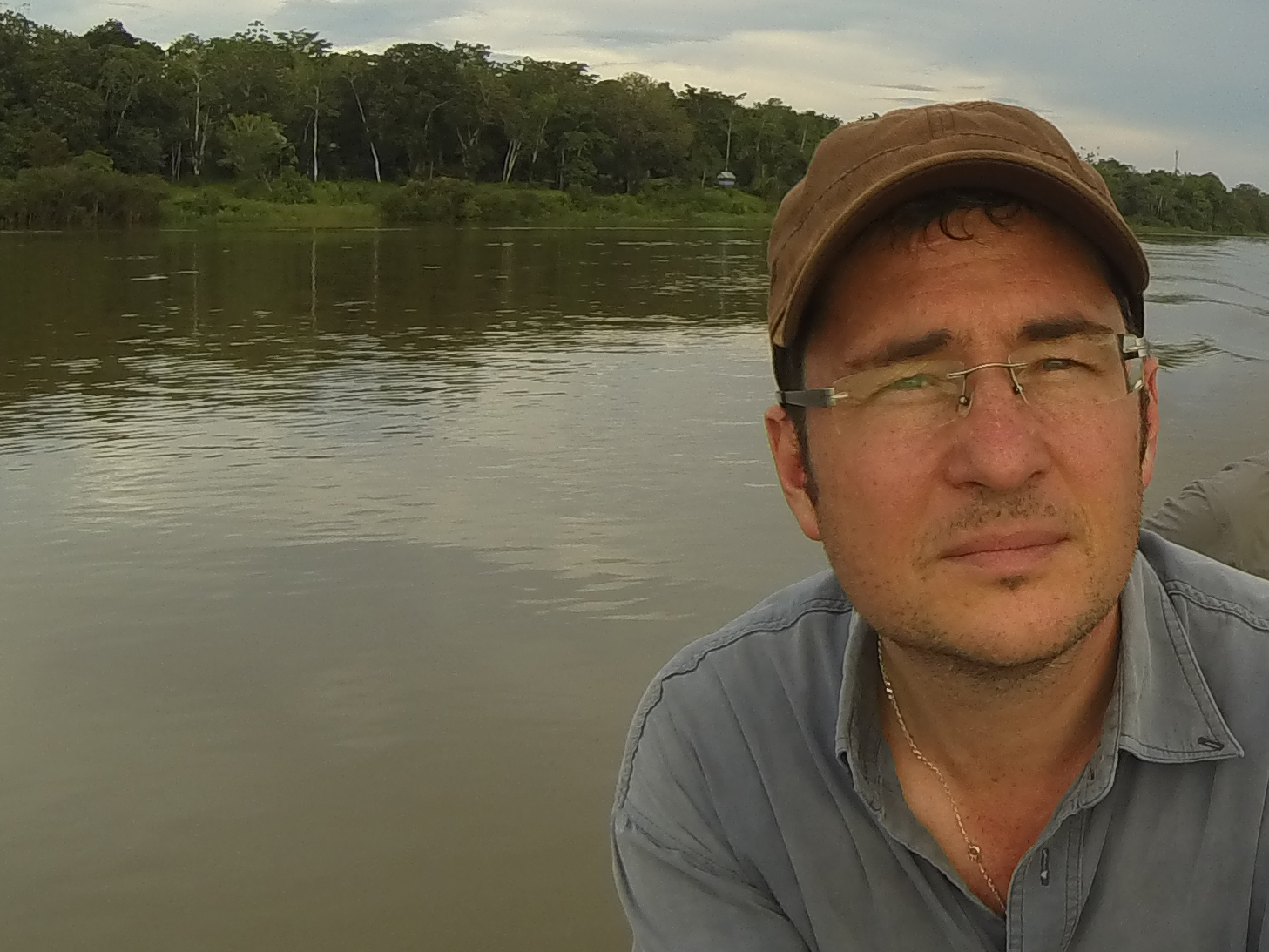Oil Palm: Beyond Controversy
“It’s complicated…”, or at least “it’s more complicated than you think“. Our opinion on issues, from the futile to the most pressing, tends to be based on an illusion of understanding [1]. We think we know, and this entitles us to take action. But it’s actually more complicated than you think.
You will, no doubt, have heard that oil palm is driving rainforest destruction. We are told that this is so by media, social feeds, pressure groups, etc. We think we know what’s going on, we form opinions, and we might even take action, by boycotting products containing oil palm, for example.
OPAL brings together stakeholders
In 2015 we started a Research for Development (R4D) project funded by the SNSF and SDC on the future of oil palm in tropical landscapes. The externe Seite Oil Palm Adaptive Landscapes (OPAL) project brings together academics, NGOs, and producers, from Colombia, Cameroon, Indonesia, and Europe, to study the modalities of oil palm production in the tropics, and to better understand the supply chain.
In November we organized our first roundtable at ETH Zurich, “Oil Palm: Beyond controversy”. We expected 60 people to attend. That the room was packed, with more than 220 participants, is clear evidence of the public interest in this topic.
Both sides of the coin
Our message was clear: the issues surrounding oil palm are real, be they the link to deforestation [2], the recurrent fires that clog Southeast Asian skies [3], or the displacement of marginalized communities [4]. We acknowledged these problems, yet we also discussed the positive aspects, both economic and environmental, of oil palm development [5]. Oil palm needs less fertilizer, pesticides, land, or energy, than equivalent oil crops. Smallholder farmers generally see oil palm as a wonderful opportunity to escape poverty [6]. But these positives are rarely recognized by a western public, who instead tend to focus on the undoubted negative environmental impacts of oil palm expansion. So we had facts to present and myths to debunk.
Making a difference
Did we get our message across to our audience? Were we able to inform public opinion? We asked our audience to report their understanding of the oil palm issue by holding up red, yellow, or green cards. Green indicated a good understanding and strong opinion, yellow indicated some understanding but not sufficient to have a strong opinion, and red, very little understanding. Before the round table began, there was a kaleidoscope of colours scattered through the audience. We asked the same question after the discussions. The response was a watershed moment (see picture below): a patchwork of three colors had become an almost uniform blanket of yellow cards. Respondents who had felt under-informed had gained new knowledge, moving from red to yellow. Yes, we had been successful in conveying new information.

More important, those who thought themselves well-informed at the start and had strong opinions now revised their position, moving from green to yellow: the issues were more complicated than they initially thought. We had shattered their illusion of understanding.
Many left the auditorium disappointed about the lack of controversy. They had expected a heated debate between our panelists. But that was precisely our point. Such debates achieve little other than entrenching existing positions. We prefer a discussion that recognizes complexities, and views them from various perspectives. In this way, the problems remain, but the controversies vanish, leaving room for constructive enquiry, a healthy dose of doubt, and the possibility of sitting at the table to devise new and better arrangements. If we achieve this, we might begin to explore improved outcomes for development and conservation. We hope to succeed; but we are not sure that we will, because it’s probably “more complicated than we think”.
Claude Garcia wrote this blog together with Anne Dray and Jaboury Ghazoul (Institute of Terrestrial Ecosystems ITES, ETH Zurich).
Further information
[1] Knowing the limits of one’s understanding: externe Seite The development of an awareness of an illusion of explanatory depth
[2] Savilaakso, S., Garcia, C., Garcia-Ulloa, J., Ghazoul, J., Groom, M., Guariguata, M. R., ... & Zrust, M. (2014). externe Seite Systematic review of effects on biodiversity from oil palm production. Environmental Evidence, 3(1), 1-21.
[3] Sandker, M., Suwarno, A., & Campbell, B. M. (2007). externe Seite Will forests remain in the face of oil palm expansion? Simulating change in Malinau, Indonesia. Ecology and Society: a journal of integrative science for resilience and sustainability, 12(2).
[4] Grajales, J. (2011). The rifle and the title: paramilitary violence, land grab and land control in Colombia.Journal of Peasant Studies, 38(4), 771-792.
[5] Sayer, J., Ghazoul, J., Nelson, P., & Boedhihartono, A. K. (2012). externe Seite Oil palm expansion transforms tropical landscapes and livelihoods. Global Food Security,1(2), 114-119.
[6] Feintrenie, L., Chong, W. K., & Levang, P. (2010). Why do farmers prefer oil palm? Lessons learnt from Bungo district, Indonesia. Small-scale forestry, 9(3), 379-396.



